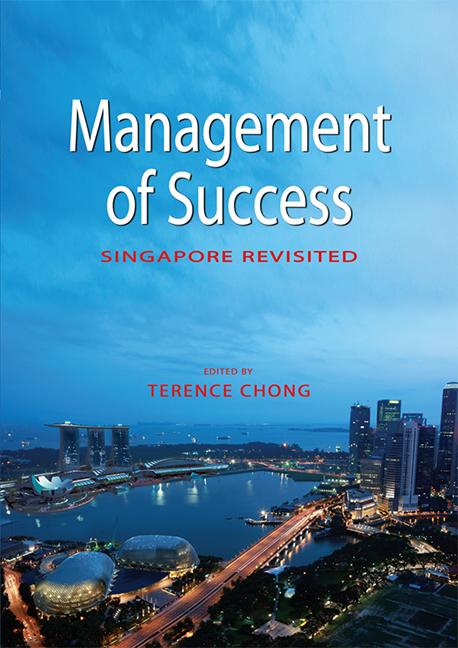Book contents
- Frontmatter
- Contents
- List of Tables and Figures
- Foreword
- Message
- Quote
- Preface
- The Contributors
- 1 Introduction: The Role of Success in Singapore's National Identity
- SECTION 1 SINGAPORE IN THE BIGGER PICTURE
- SECTION 2 LEADERSHIP, POLICY AND POLITICS
- SECTION 3 THE RESTRUCTURING OF THE ECONOMY
- SECTION 4 THE TRANSFORMATION OF SOCIETY
- SECTION 5 THE LAW
- SECTION 6 MODIFICATION OF THE ENVIRONMENT
- SECTION 7 COMMUNITY AND NATIONAL SECURITY
- 24 Community Confidence and Security
- 25 National Security and Singapore: An Assessment
- SECTION 8 LIFE IN SINGAPORE
- Index
24 - Community Confidence and Security
from SECTION 7 - COMMUNITY AND NATIONAL SECURITY
Published online by Cambridge University Press: 21 October 2015
- Frontmatter
- Contents
- List of Tables and Figures
- Foreword
- Message
- Quote
- Preface
- The Contributors
- 1 Introduction: The Role of Success in Singapore's National Identity
- SECTION 1 SINGAPORE IN THE BIGGER PICTURE
- SECTION 2 LEADERSHIP, POLICY AND POLITICS
- SECTION 3 THE RESTRUCTURING OF THE ECONOMY
- SECTION 4 THE TRANSFORMATION OF SOCIETY
- SECTION 5 THE LAW
- SECTION 6 MODIFICATION OF THE ENVIRONMENT
- SECTION 7 COMMUNITY AND NATIONAL SECURITY
- 24 Community Confidence and Security
- 25 National Security and Singapore: An Assessment
- SECTION 8 LIFE IN SINGAPORE
- Index
Summary
COMMUNITY SECURITY IN SINGAPORE
Singaporeans are constantly reminded that Singapore is only a state and a sovereign entity, but not yet a nation. While the state as a major political subdivision of the globe can be readily defined in quantitative terms, namely by its territorial boundaries and its inhabitants, in contrast, the essence of a “nation” is intangible, although most attempts to articulate it implies a feeling of sameness, of oneness, of belonging, or of a consciousness of kind. Moreover, according to official rhetoric in Singapore, the survival of the state depends on the existence of a nation which generally follows closely to the definition by Rupert Emerson as “a single people, traditionally fixed on a well-defined territory, speaking the same language and preferably a language all its own, possessing a distinctive culture, and shaped by a common mould by many generations of shared historical experience”. Following from this, Singapore only meets the territorial criterion and is thus a sovereign state, but not a nation.
However, the notion that Singapore's culturally diverse populace impedes the cultivation of a national consciousness is consistently challenged by quantitative studies surveying the attitudes and opinions of Singaporeans. Studies measuring the strength of Singaporeans’ national identification conducted as early as 1969 both indicated very positive results. For example, a 1970 study by John MacDougall found that 75 per cent of the respondents preferred being referred to as a Singaporean rather than Chinese, Malay, or Indian; when asked to rank the top three countries in the world they would choose to live in given the choice, 60 per cent ranked Singapore as their first choice, and 62 per cent ranked Singapore higher than their ancestral country. Chiew Seen Kong's 1969 study on the national integration of Singaporeans found intolerance to structural integration to be low, for example with a mere 4 per cent of Singaporeans rejecting interethnic participation in community centre activities to a “high” of 26 per cent who reject neighbourhood desegregation. Although these studies do not suggest that perfection was achieved, it was nonetheless an impressive report card for a plural society with barely five years of nationhood. Subsequent studies indicate a trend of a commitment to the nation that is growing from strength to strength. Why then does the state continue to harbour reservations about the commitment of Singaporeans to the nation?
- Type
- Chapter
- Information
- Management of SuccessSingapore Revisited, pp. 443 - 461Publisher: ISEAS–Yusof Ishak InstitutePrint publication year: 2010

